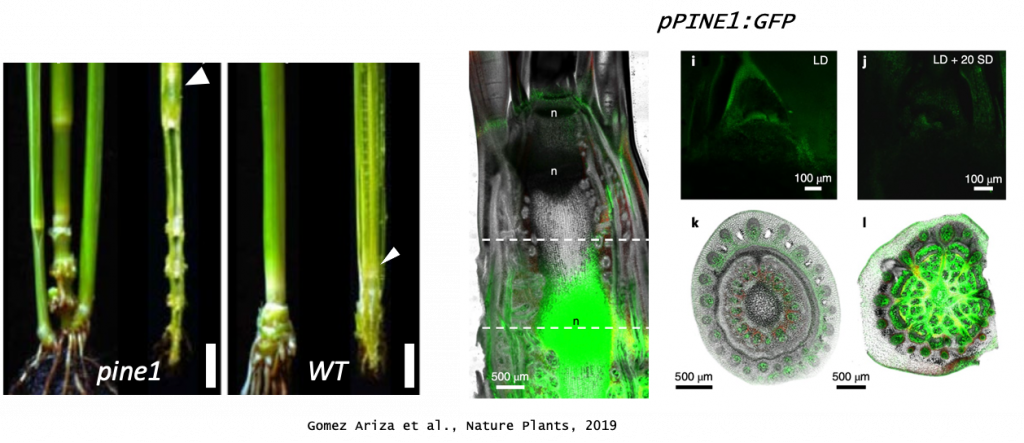Stem elongation
During flowering induction, florigen proteins that reach the shoot apical meristem promote stem elongation by repressing the expression of the PREMATURE INTERNODE ELONGATION 1 (PINE1) gene, which encodes a transcription factor of the C2H2 family. Suppression of PINE1 increases the stem’s sensitivity to gibberellins (GA), plant hormones that promote growth, allowing rapid internode elongation. PINE1 also plays a key role in rice varieties that grow quickly under submerged conditions. By regulating the expression of this gene, we have been able to modify plant height. Currently, we are studying the molecular function of PINE1 in detail, with the goal of developing ultra-short rice lines suitable for specific applications.

In the group of images on the right, a comparison is shown between the stems of pine1 mutant and wild-type (wt) plants grown under long-day conditions. The white arrow indicates the position of the shoot apical meristem, which is much higher in the pine1 mutants compared to the wt controls. In the group of images on the left, the expression of PINE1 in the rice stem is shown. The gene is no longer expressed after the plants have been exposed to 20 consecutive short days (20 SD).
